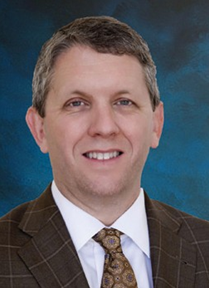We’re all familiar with the basic story line of the Baby Boom, when post-World War II birth rates doubled during the span between 1946 and 1964. All of us benefited from the increased economic production and consumption brought on by the 75 million “Boomers” who were added to the population. In fact, America still feels the impact of our Baby Boom.
The effects of the Baby Boom have truly been profound. Our economy expanded rapidly over the past six decades as corporate America provided an ever-increasing level of goods and services to the Boomers at every stage of their life-journey.
As companies grew their revenues and financed that growth through our capital markets, the U.S. economy expanded to become the world’s largest.
Most financial pundits in the U.S. lament the end of this era as our Boomers transition from their productive earning years into retirement and subsequently begin the draw down of their retirement savings. As the economic impact of this trend begins, however, an even bigger baby boom is just over the horizon.
How big is it? The 75 million “American Boomers” pales in comparison to the middle class of 1,000 million (1 billion) estimated to be created over the next decade by the emerging global economies. And China, India, and Indonesia are leading the way in this population explosion.
Just as our 20th century “American Boomers” created investment opportunities, so too will the 21st century “Emerging Boomers” over the next 50 years. However, our national pride clouds the filter through which we analyze the events taking place outside our borders.
Admittedly, it is often hard to be happy for another country’s good fortune. This is not just an American phenomenon and explains much of why the rest of the world seems to enjoy our travails.
Nor is this just a 20th century phenomenon. History is replete with stories of jealousy, often played out through war, as countries jockeyed for the economic lead. This financial angst is fueled by the misguided belief that prosperity is a zero-sum game; that for every unit of prosperity someone else enjoys, there is one less unit of prosperity for us.
Perhaps there are unique moments in time when this is temporarily true. Take Bill Gates’ story, for example. His early success surely thwarted the similar efforts of other talented people. However, think of the man y jobs created by Microsoft and the growth of our economy due to his innovations! If economics were a zero-sum game, then global wealth would still be stuck in the stone-age. Thankfully, it is not and never will be.
Growth will continue even if America no longer produces the lion’s share. However, this does not mean we won’t grow, too. To illustrate this, picture a simple pie- any flavor you like. Most people perceive the American slice to be shrinking. We surmise if Asia’s piece is growing, ours must be getting smaller in exchange. But in reality the entire pie is growing! Yes, Asia’s piece is growing faster, but our American slice continues to get bigger, too.
In 2010, the U.S. middle class made up 35% of global consumption, but is expected to make up only 20% by 2025. While many will look at this as a sign of America’s decay, it is not. It is merely the result of the emerging world’s large population, along with their rapid economic development. In 2025, our 20% of a much larger pie will be greater than 35% of 2010’s smaller pie.
Like the American experience, the middle-class is growing rapidly in most of the emerging countries and these new consumers will fuel strong economic growth. Local and global companies are competing to position themselves in front of this demographic wave. As with all corporate activities, companies must spend and invest now in order to reap the benefits down the road. Costs always precede profits! Don’t take your eyes off the investment prize being created by the emerging consumer of the Bigger Baby Boom.
This article originally appeared in Westlake Malibu Lifestyle Magazine.
![]() Click here to download a PDF version of this article. (Link opens a new window.)
Click here to download a PDF version of this article. (Link opens a new window.)
 Robert J. Katch is the founder of Manchester Financial, an Investment Counsel/Wealth Management firm located in Westlake Village. For more information call 800-492-1107.
Robert J. Katch is the founder of Manchester Financial, an Investment Counsel/Wealth Management firm located in Westlake Village. For more information call 800-492-1107.
This material provided for general and educational purposes only, and is not legal, tax or investment advice. For each strategy or option mentioned, there are detailed tax rules that must be followed.


